Search for academic programs, residence, tours and events and more.
Built around themes of music, health, community and culture, this four-year degree will benefit students interested in mastering their research skills and looking to make their mark in the fields of music therapy or community music.
Unique not only in Canada, but also internationally, the program curriculum is based on a Doctoral Action Plan, Problem-Based Learning, Peer Learning, and various Doctoral Special Seminar Topics (DSST).
Research pursuits are limitless, but may include music and wellness, music performance and transforming communities, music therapy interventions, music and the brain, global music practices, activism in health and well-being, music and aging, and music-medicine.
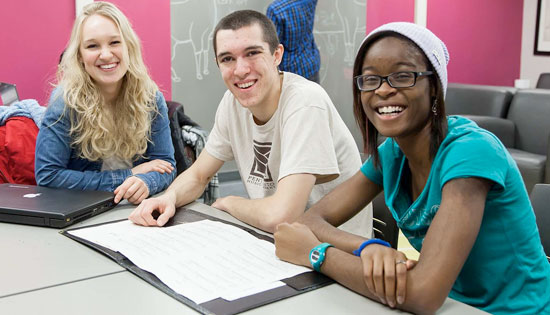
First program of its kind.
Diverse Doctoral Special Seminar Topics replace mandatory courses, personalizing your learning.
Options to focus research in Community Music or Music Therapy.
The PhD in Music consists of 12 credits, comprised of a combination of Doctoral Seminar Special Topics (DSSTs), independent directed studies proposals relevant to their research topics as electives, seminars or symposia, research supervision, comprehensive exams and final dissertation writing and defense.
Because of the diversity of research topics pursued, the PhD program in Community Music/Music Therapy does not involve a core component; in general, the student works mainly with an individual supervisor and with their peer group.
Once the project is defined, methods established, and ethics approved, the subsequent years in the program are devoted to refining the research and moving forward in data collection. Along with collaborative learning, faculty advisement, and doctoral special topics seminars, the student develops a level of expertise in the specific field of focus.
During the initial year of the program, students will work closely with a faculty advisor, research supervisor, and Collaborative Learning Communities (CLC) comprised of peer groups to establish and refine a research topic, scheduled goal-searching with task completion-related milestones, methodology planning, literature review, and symposium participation. Deliverables may include, but are not limited to:
During the second year of the program, students will work closely with their research supervisor and Collaborative Learning Communities (CLC) comprised of peer groups to establish and refine the research proposal (LOI), literature review, and data collection launching. Deliverables may include, but are not limited to:
During the third year of the program, students continue working closely with their research supervisor and Collaborative Learning Communities (CLC) formed of peer groups, to refine data collection, data analysis, and dissertation writing. Main tasks include, but are not limited to:
During the final year of the program, students continue working closely with their research supervisor to finish their dissertation, and to prepare the oral defense. Main tasks include, but are not limited to:
As a research-intensive doctoral degree, curriculum provided through Doctoral Action Plan, Problem-Based Learning, Peer Learning, and various Doctoral Special Seminar Topics (DSST) are designed to enable students to achieve doctoral level learning outcomes, meeting the qualifications and criteria for PhD-level research specific activity.
In the first year, students develop a Doctoral Action Plan. Under the supervision of a faculty advisor, personal and professional learning outcomes would be developed, and the action plan would include targets and milestones for the project. Research projects would be designed and approved in consultation with the advisor or advisors and include thorough literature reviews.
This doctoral program is informed by the principles of Problem-Based Learning offering constructivist strategies where the doctoral student assumes the role of a self-directed and self-regulated learner.
Collaborative Learning Communities formed of peer groups will be established. By working within the peer group an enriched learning community is created where ideas and problems are shared, knowledge exchanged, and learning finds value at an academic, professional, and personal level. Learning communities will be in regular contact and meet intensively 2–3 times a year.
A paid teaching component, generated through Teaching Assistantships for undergraduate courses, will be an important part of the PhD student’s training. This will enhance the overall quality of the undergraduate and graduate student experience.
Regular consultations with a faculty advisor will provide structure in meeting pre-determined milestones throughout the degree program. The frequency of these meetings will vary, depending upon the type of research undertaken and the progression stage of the student within the program. It is recommended that bi-weekly sessions be scheduled initially.
Doctoral Seminar Special Topics (DSSTs) are three-day intensives where students explore topics in-depth as a community of learners under the instruction of experts in the field. Three DSSTs will be scheduled annually. Students are required to attend at least two seminars each year with a minimum of eight required by the time of graduation.
DSST examples:
During the second year of the program, a public, 45-minute presentation will be scheduled followed by Q/A and discussion. All faculty and grad students will be encouraged to participate.
A major research study serves as the culminating evaluation. A dissertation (including arts-based research utilizing multi-media formats as pertinent to the student’s study) is required along with its successful defense. Each student will work with a faculty advisor or advisors over the duration of the program.
The student and advisor will establish deliverable dates where the student completes aspects of their study program, according to the outcomes designed and agreed upon ahead of time.
For example, Year 1 would include building a doctoral action plan where learning outcomes, project descriptions, literature reviews and research focuses are developed. Year 2 would include the ethics approval process and the start of data collection. It might also include an elective course and/or an applied placement. Pathways through the degree program are flexible and will be adapted to the student’s research focus.
A wide range of research topics are welcome, encouraging the student to explore areas of personal interest that have current relevance to the field. Personal and professional learning outcomes are developed, and the action plan will include targets and milestones for the project.
Upon approval of the proposed topic, the student will begin a research program under regular supervision. A supervisory committee comprised of two or more faculty will be established to support and provide feedback on the student’s progress, assessing the research plan.
With a focus on either Community Music or Music Therapy, this degree would accommodate candidates interested in one or more of the following areas of study:
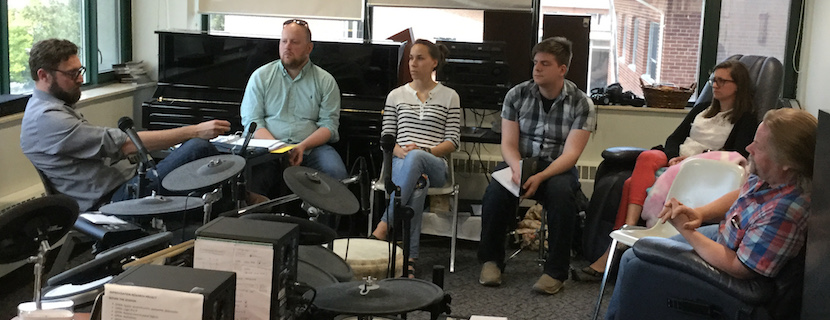
The Manfred and Penny Conrad Institute for Music Therapy Research (CIMTR) is a dynamic forum that bridges the divide between clinical practice and research. Our mission is to provide opportunities for concrete research collaboration and discussions.

The Laurier Centre for Music in the Community (LCMC) is dedicated to fostering vibrant and inclusive musical communities through evidence-based participatory music practices. We connect Laurier to the wider Waterloo Regional community through musical activities, community research and collaboration
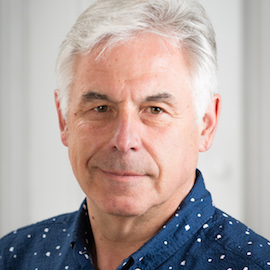
"This program is uniquely designed and provides students with the expertise, resources, and experience to develop themselves as leading researchers in community music or music therapy."
Professor Lee Willingham, co-coordinator of Laurier’s PhD in Music: Community Music
Take the first step in your graduate education and apply to one of our graduate programs. Follow our three-step admission process — we’ll walk you through how to apply and prepare for your first day as a graduate student.
*Domestic applications will remain open until May 1 with priority given to applicants who have submitted all application requirements by March 1. Those who apply after March 1 will only be interviewed, should there be room in the program.
Successful applicants must have completed a master’s program in areas such as Music, Music Education, Fine Arts, Music Therapy, or Community Music with a minimum average of A-. Applicants holding an honours undergraduate degree in in Music/Music Therapy/Community Music and a master’s degree in allied fields such as Social Work, Psychology, Pastoral Counselling, Music Education, Early Childhood Music, Pedagogy, Leisure Studies, or other related fields may be considered.
The application process will consist of an interview, three (3) academic reference letters, a completed Statement of Intent** and an example of graduate-level writing.
Your Statement of Intent describes what you will investigate, why your topic is important, and how do you plan to conduct your research. It should include a title, introduction, literature review, research design (paradigm, research methods, data collection/analysis plan) and references. (2000 words)
Applicants to this program will indicate either (a) Community Music or (b) Music Therapy as their primary field of proposed study. Documented field experience in the applicant’s area of study will be considered an asset.
Applicants whose language of instruction was not English must furnish evidence of proficiency in English prior to admission, in accordance with university requirements.
Students who may not come from traditional music degrees but demonstrate life experience in pertinent aspects of Community Music or Music Therapy along with a strong application may be eligible for admission under the university’s existing alternate admission plan provision.
Applications will remain open until May 1, 2023 with priority given applicants who have submitted all application requirements by March 1, 2023. Those who apply after March 1 will only be interviewed should there by room in the program.
** In addition to submitting the digital copy of the Statement of Intent, applicants must submit a link to choosemusic@wlu.ca with a 5-10 minute video, summarizing your Statement of Intent. The purpose of the video is to introduce yourself, why do you want to do PhD at Laurier, and would be a good candidate for the programme.
After you have submitted your OUAC application, paid the non-refundable application fee, and Laurier has received your application, you'll receive an email from gradadmissions@wlu.ca advising you to upload the additional required documentation to Laurier’s Online Registration and Information System (LORIS).
Note that the application process and the uploading of supplemental documentation, which includes references, typically takes two weeks. To avoid disappointment, please apply early.
An application for admission to our PhD program in Music must include:
Visit our Graduate Admissions Toolkit for more information about applying.
Proficiency in written and spoken English is essential to graduate studies at Laurier. Applicants whose language of instruction during their previous postsecondary education was not in English must submit evidence of proficiency in English. If applicable, results from accepted testing services must be uploaded to LORIS.
Questions? Contact choosemusic@wlu.ca.
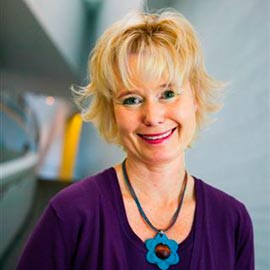
"There is no doubt our doctoral students will leave a lasting impression in the international research community, positively impacting the discipline of music therapy as well as the credibility of clinical work and practice."
Professor Heidi Ahonen, co-coordinator of the PhD in Music: Music Therapy
Full-time domestic students will benefit from bursary and teaching assistantship opportunities at the university. Those unable to suspend their careers also have the option to complete the program as part-time students.
All full-time domestic students receive the PhD minimum guaranteed funding (MGF) package of two teaching assistantships and a scholarship.
The Faculty of Music welcomes international students to the PhD Program. International students who have confirmed funding from a third-party, such as their employer or a scholarship program in their home country, will be considered for admission beginning in the 2024/25 admission year. Learn more about admission requirements for international applicants.
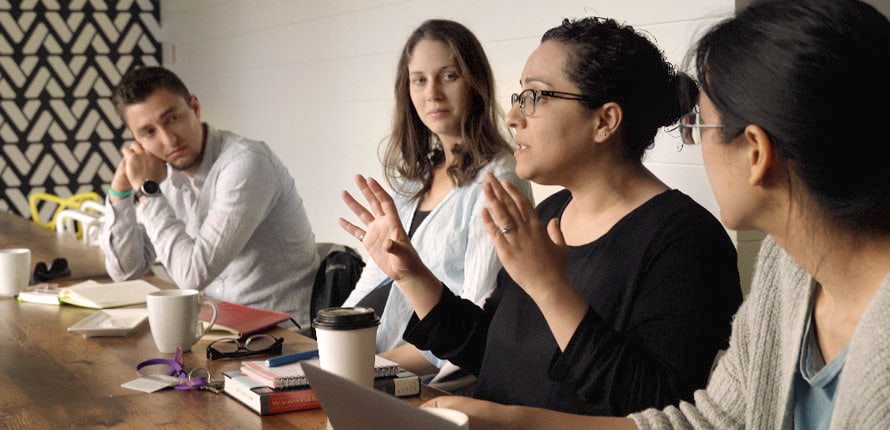
Graduates may go on to work in the following settings:
ASPIRE is Laurier's professional skills development training program for graduate students. The program helps you craft an individualized, extracurricular learning plan tailored to your professional journey and entry to the workplace.
Learn about the interests of our faculty members. If you are looking for more information about this program, have questions, or want to set up a meeting, contact a member of our team.
Heidi Ahonen
Professor, Music Therapy
Coordinator, Master of Music Therapy
Director, Manfred and Penny Conrad Institute for Music Therapy Research
Lee Willingham
Professor, Music Education
Director, Laurier Centre for Music in the Community
Coordinator, Music Education
Coordinator, Master of Arts in Community Music
Think this is the perfect program to continue your education?